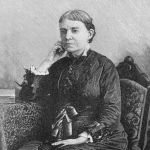Gauley Bridge is a good town for Negroes, they let us stand around, they let us stand
around on the sidewalks if we’re black or brown.
Vanetta’s over the trestle, and that’s our town.
The hill makes breathing slow, slow breathing after your row the river,
and the graveyard’s on the hill, cold in the springtime blow,
the graveyard’s up on high, and the town is down below.
Did you ever bury thirty-five men in a place in back of your house,
thirty-five tunnel workers the doctors didn’t attend,
died in the tunnel camps, under rocks, everywhere, world without end.
When a man said I feel poorly, for any reason, any weakness or such,
letting up when he couldn’t keep going barely,
the Cap and company come and run him off the job surely.
I’ve put them
DOWN from the tunnel camps
to the graveyard on the hill,
tin-cans all about—it fixed them!—
TUNNELITIS
hold themselves up
at the side of a tree,
I can go right now
to that cemetery.
When the blast went off the boss would call out, Come, let’s go back,
when that heavy loaded blast went white, Come, let’s go back,
telling us hurry, hurry, into the falling rocks and muck.
The water they would bring had dust in it, our drinking water,
the camps and their groves were colored with the dust,
we cleaned our clothes in the groves, but we always had the dust.
Looked like somebody sprinkled flour all over the parks and groves,
it stayed and the rain couldn’t wash it away and it twinkled
that white dust really looked pretty down around our ankles.
with a white man, nobody could have told which man was white.
The dust had covered us both, and the dust was white.



















Comment form: